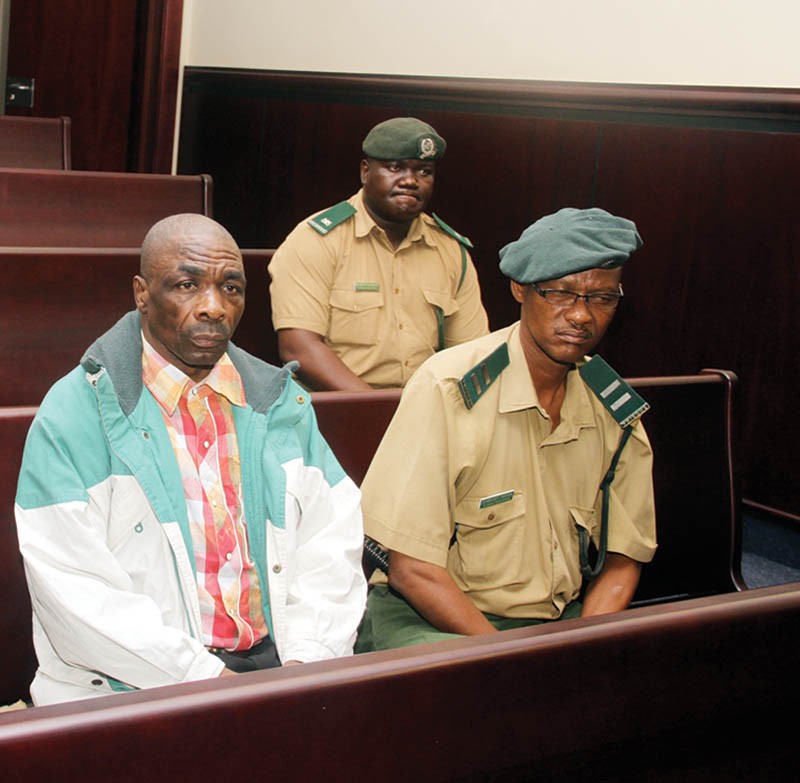Second time death row inmate to finally hang
Mpho Mokwape | Friday July 31, 2015 15:27


The 55-year-old Gabaakanye was sentenced to death for the murder of a visually impaired septuagenarian at Ga-Mosusu Lands in 2010. He was also jailed for five years for unlawfully wounding the wife of the 74-year-old deceased man.
Gabaakanye, who has a string of previous convictions dating as far as 1989, is no stranger to the death sentence. He escaped the hangman’s noose when the death sentence he was facing in 1993 was overturned to 15 years in 2004 after a successful appeal.
This time the Court of Appeal was not convinced and it confirmed the conviction and sentence against Gabaakanye for his new crimes.
Reading the judgment, Justice Isaac Lesetedi said the trial court was fully entitled to reach its verdict both on conviction and sentence because of the overwhelming evidence against the accused.
“The evidence before the court sufficiently wove an intractable net of the guilt around the appellant, establishing his guilt beyond a reasonable doubt,” he said, as Gabaakanye appeared increasingly confused, eyes glistening with tears. Justice Lesetedi said that murder was a serious offence and its charge brings into the centre both the lost life of the deceased and the life of the accused.
He explained that it was important both to the society, the family of the deceased, the accused, his/her family and also in the interest of justice that an investigation and prosecution should be thoroughly carried out and handled in a proficient manner.
“It is in the interest of justice for an accused person to be tried in a fair manner with the relevant evidence being brought before court. “It is important to the deceased’s loved ones to know how their loved own one met his or her fate and whether it was within the capability of prosecution to bring such evidence before the court,” he said.
On the issue of premeditation, Justice Lesetedi said he did not understand how the appellant knew whether the killer lacked premeditation in committing the murder if it was not him who killed the helpless old man.
“There was difficulty with the argument on the absence of premeditation because firstly, the appellant consistently denied having been the perpetrator and denied completely about the commission of the offence,” he argued.
Justice Lesetedi further said the bigger hurdle Gabaakanye faced was that the presence premeditation could often be inferred from circumstances of the offence and the nature of injuries inflicted to determine the state of mind of the perpetrator at the time.
He said in Gabaakanye’s case he approached the elderly couple fully masked, armed with a blunt weapon and his assault on them was aimed on the heads, a vulnerable part of the body.
“Two blows with a blunt object hit the deceased, a blind old man. There is no evidence that the deceased ever fought or provoked the appellant in any manner…
“The pathologist’s evidence which was not disputed shows that the deceased had no other injuries except on the head and there were five different blows and as such, there is no doubt he had the intention to kill the old man as he thought his wife was already dead after passing out”.
Justice Lesetedi explained that there were no extenuating circumstances from the record and the appellant did not give evidence on his state of mind to reduce his moral blameworthiness, rather he maintained that he was not involved in the crime while there is overwhelming evidence. “The findings of the trial court on extenuating circumstance cannot be impugned and the appellant had admitted to a number of previous convictions involving violence, many offences of robbery and murder and now another murder, clearly he has not reformed,” he said.
